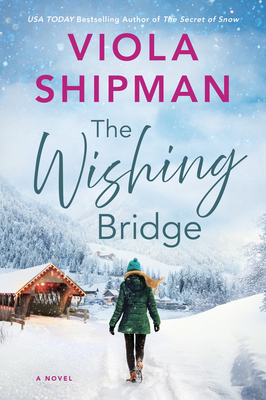 The Wishing Bridge by Viola Shipman
The Wishing Bridge by Viola Shipman Format: eARC
Source: supplied by publisher via Edelweiss
Formats available: hardcover, large print, paperback, ebook, audiobook
Genres: holiday fiction, relationship fiction, women's fiction
Pages: 368
Published by Graydon House on November 7, 2023
Purchasing Info: Author's Website, Publisher's Website, Amazon, Barnes & Noble, Kobo, Bookshop.org, Better World Books
Goodreads
With unabashed winter charm, The Wishing Bridge sparkles with the humor and heart fans of Kristy Woodson Harvey, Nancy Thayer and Jenny Colgan love most.
Once the hottest mergers and acquisitions executive in the company, Henrietta Wegner can see the ambitious and impossibly young up-and-comers gunning for her job. When Henri’s boss makes it clear she’ll be starting the New Year unemployed unless she can close a big deal before the holidays, Henri impulsively tells him that she can convince her aging parents to sell Wegner’s—their iconic Frankenmuth, Michigan, Christmas store—to a massive, soulless corporation. It’s the kind of deal cool, corporate Henri has built her career on.
Home for the holidays has typically meant a perfunctory twenty-four-hour visit for Henri, then back to Detroit as fast as her car will drive her. So turning up at the Wegner’s offices in early December raises some eyebrows: from her delighted, if puzzled, parents to her suspicious brother and curious childhood friends. But as Henri fields impatient texts from her boss while reconnecting with the magic of the store and warmth of her hometown, what sounded great in the boardroom begins to lose its luster in real life. She’s running out of time to pull the trigger on what could be the greatest success of her career…or the most awkward family holiday of her life.
Includes the bonus novella Christmas Angels
My Review:
“Home is the place where, when you have to go there, they have to take you in,” at least according to Robert Frost. But just because they have to take you in, or even if they WANT to take you in, that does not give you permission to steal it out from under them.
Which is EXACTLY what Henrietta Wegner plans to do when she returns home to Frankenmuth, MI and to the ‘all Christmas all the time all year round’ store named after her family. A store that anchors not just the Christmas season in Frankenmuth but the whole, entire town.
50something Henri is on the ropes at the cutthroat mergers and acquisitions firm she cut a wide swath through back in the day – when she first left home to make her own mark. Now she’s back home, attempting to defend that mark by ‘acquiring’ the store her parents have put their heart and soul into.
Henri sees herself as the Grinch, descending upon Whoville with a heart that’s three sizes too small – if not a bit more.
But just as no plan survives contact with the enemy – a description that Henri is sure will be left in her wake – Henri’s plan to put the Grinch into her family’s Christmas doesn’t look like it can survive contact with the Spirit of Christmas.
Henri’s story has all the makings of one of those Hallmark holiday movies that she and her mother are not-so-secretly fond of – if she’ll just let it. Happy Holidays, indeed!
Escape Rating B+: The Wishing Bridge, in addition to being a heartwarming story for the holiday season, combines two romance/women’s fiction tropes in a way that the one reinforces the other and back around again, and both lean in to the holiday season in a way that just wraps the whole story up with a bright red holiday bow with an ornament hanging from it.
At first, The Wishing Bridge is that tried-and-true story about the stone-hearted corporate bigwig coming to a tiny town to take it over and make it over – or tear it down – who discovers that he or she has a heart after all that gets captured by the town, the people who live there, and some special someone.
AND The Wishing Bridge is also a story about second chances. Not just a second chance at romance, although that too, but a second chance at pretty much everything. It’s a story about that ‘road not taken’ winding back around and intersecting with the road that Henri took all those years ago, giving her the opportunity – not so much to do things over, because life has happened and this isn’t a time travel story – but rather to make a different choice for the next phase of her life.
Both of those tropes require that the main character take a good, hard look at the life they have and decide whether it’s REALLY the life they want or need, and those are never easy decisions – and they’re certainly not for Henri.
(That her boss is an utter douchecanoe seems like it should make the decision easier, but it’s right that it doesn’t and even right-er that he’s not her ex. Because that would be gross under the circumstances. This is about Henri and what she wants, his asshattery is not REALLY what her decision needs to be about and that’s handled well.)
One thing that turned out to be difficult for this reader, and leads to a bit of a trigger warning. A lot of what makes the idea of selling Wegman’s out from under her parents instead of signing on and continuing their legacy is that the all-Christmas all the time dream was one that she shared with her father. He still has that dream, but she’s let it fall behind her – or buried it under her own ambitions. There’s a lot about fathers and daughters in this one, and it gave me a bit of the weepies even though the ending is a happy one. (In other words, if you have unfinished business with your dad, it may hit you the same way.)
To make a long story at least a bit shorter, even though the eARC did not include the bonus novella Christmas Angels, The Wishing Bridge all by itself is a charming story and a lovely start to the holiday reading season!


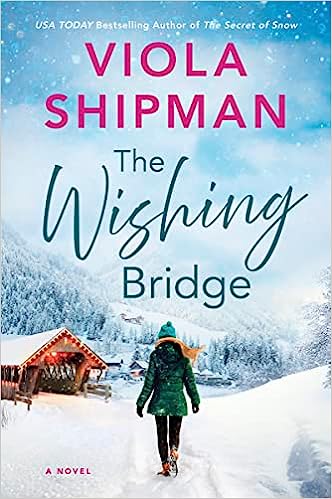 The Wishing Bridge by
The Wishing Bridge by 

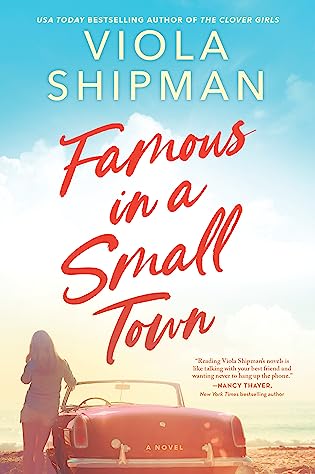 Famous in a Small Town by
Famous in a Small Town by  I picked up this book because I loved the beautifully “sad fluff” of the author’s earlier novel,
I picked up this book because I loved the beautifully “sad fluff” of the author’s earlier novel, 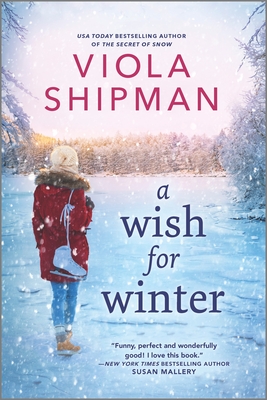 A Wish for Winter by
A Wish for Winter by 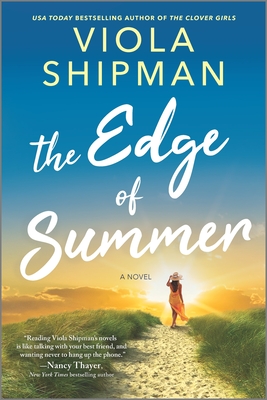 The Edge of Summer by
The Edge of Summer by 
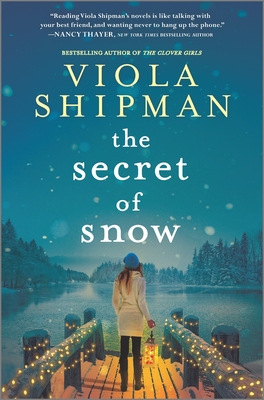 The Secret of Snow by
The Secret of Snow by 
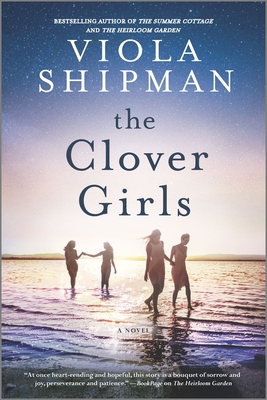 The Clover Girls by
The Clover Girls by 